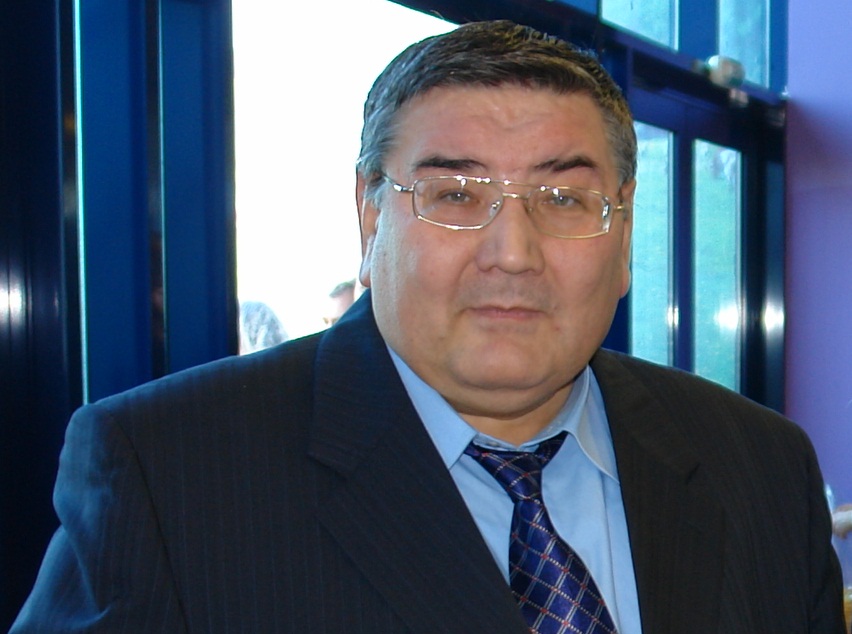
Rebel Tatar Prosecutor Banished by Moscow
Publication: Eurasia Daily Monitor Volume: 10 Issue: 175
By:

On September 21, Tatarstan’s Prosecutor General Kafil Amirov unexpectedly resigned. Russian Prosecutor General Yuri Chaika signed the decree about Amirov’s resignation. On September 26, Ildus Nafikov, the prosecutor general of Tatarstan’s capital Kazan was appointed to replace Amirov. During a question-and-answer session with republican parliamentary deputies, Nafikov promised “to defend the principles of federalism and further develop republican legislation.” According to the Regnum news agency, people in Tatarstan always understood “principles of federalism” as meaning the “maximum separation of the republic [from the rest of Russia] and the maximum division of powers between [the republic and] the center [Moscow]” (https://www.regnum.ru/news/fd-volga/tatarstan/1712603.html).
The replacement of Tatarstan’s prosecutor general was connected to the continuing struggle between Moscow and Kazan over political power in the republic. The Russian nationalist-leaning website Apn.ru noted that Amirov had no intention of stepping down until the very day of his resignation and was in fact forced to step down by Moscow. Citing sources in Tatarstan’s law enforcement agencies, the website reported that Moscow was angered at republican prosecutors for issuing an official warning to Rais Suleimanov, who is an expert with the Russian Institute for Strategic Research in Russia’s Volga region (https://www.apn.ru/publications/article30181.htm).
The office of Tatarstan’s prosecutor general issued a warning to Suleimanov on September 4, accusing him of extremist activities. Prosecutors investigated claims made by Suleimanov about the spread of radical Islam in the republic, the mistreatment of the local population by migrants and the presence of a training camp of Islamic radicals in Tatarstan. None of these claims were confirmed, and the republican prosecutors said Suleimanov’s publications were themselves spreading extremism by pitting people against each other along ethnic and religious lines. Moreover, it appeared that Suleimanov had no special training in the field of ethno-religious studies (https://www.kazanweek.ru/article/9626/).
The official who issued the warning, Saiyar Ziyatdinov, told the Gazeta.ru website that Suleimanov had especially emphasized the ties between the Salafi underground in Tatarstan and the republican leadership, which he dubbed a “Wahhabi holding.” According to Ziyatdinov, Suleimanov had claimed that the “Wahhabi bandit underground that allegedly operates in Tatarstan is supported by select businessmen, while the leadership of the republic supposedly provides a cover for them.” Suleimanov, for his part, denied he had engaged in extremist activities and stated that the prosecutors were persecuting him instead of addressing the issues that exist in Tatarstan. Still, the republican prosecutor’s office warned that if Suleimanov did not stop his activities, a criminal case involving charges of extremism would be launched against him (https://www.gazeta.ru/social/2013/09/04/5638301.shtml).
Suleimanov’s employer, the Russian Institute for Strategic Research, defended him against the prosecutors. The institute was established under the auspices of the Russian presidential administration, and it is not hard to guess who is behind Suleimanov. His boss at the Russian Institute for Strategic Research, Leonid Reshetnikov, condemned the republican prosecutors’ actions as an attempt “to defend radical Islamic circles that comprise an absolute minority of Tatarstan’s society, but at the same time are very active and aggressive.” Reshetnikov is lieutenant-general in Russia’s military intelligence agency, the Main Intelligence Directorate (a.k.a. Glavnoe Razvedyvatelnoe Upravlenie, or GRU). Other Russian experts affiliated with the government also condemned the move, alleging that the office of Tatarstan’s prosecutor general had ties to the Islamists (https://www.apn.ru/publications/article30181.htm).
Despite heavy pressure from Moscow, Tatarstan still manages to defy the authority of the central government on a number of important issues, perhaps more so than any other republic in the Russian Federation. On September 26, Tatarstan’s parliament rejected legislation that would further raise the status of the Russian language in Russia’s regions. The chairman of the republican parliament’s committee on culture, science, education and ethnic issues, Razil Valeyev, stated that the legislation was “directed at limiting the constitutional rights of national languages of peoples of the Russian Federation and state languages of the regions of the Russian Federation” (https://www.regnum.ru/news/fd-volga/tatarstan/1712752.html#ixzz2gF9GlaMb).
Among its other implications, the new legislation would introduce a new term for Russia—the “Russian nation” (rossiyskaya natsiya)—while the constitution of the Russian Federation refers to “Russian peoples,” recognizing the country’s multi-ethnic composition (https://www.ng.ru/news/444625.html). Both the Russian and Tatar languages have the status of “state languages” in Tatarstan, but Russian already enjoys a disproportionately high advantage over Tatar. Tatarstan’s authorities have persistently tried to raise the status of Tatar, mandating Tatar classes in the republic’s schools and investing considerable funds in enhancing the Tatar language (https://www.regnum.ru/news/fd-volga/tatarstan/1712628.html).
Tatarstan’s ability to voice opinions divergent from the Kremlin’s views rests on demographic and economic factors. Tatars are the second largest indigenous ethnic group in Russia, after ethnic Russians. Tatarstan has enjoyed a windfall of revenue from the extraction and refining of oil. The republic’s president, Rustam Minnikhanov, recently raised the question of overpayments to the federal budget, asserting that only 8–8.5 percent of Tatarstan’s oil revenues went into the republic’s budget (https://www.regnum.ru/news/fd-volga/tatarstan/1713213.html).
Kazan appears intent on defending its rights despite constant pressure from Moscow. The resourcefulness of Tatarstan makes it especially hard for Moscow to establish Soviet-style total control over the republic. The republican leadership appears acutely aware of both its power and its limits in the dialogue with Moscow.




